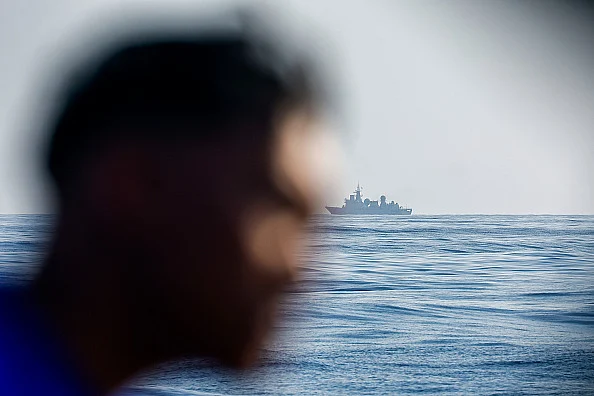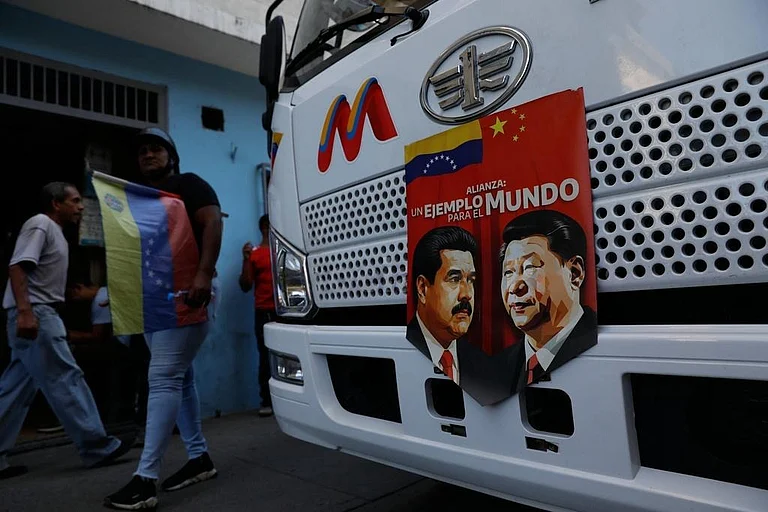On July 3, 2025, Minister of External Affairs S. Jaishankar said the South China Sea remains an "issue of great concern" for all four Quad member nations. The Minister said that it is a "common priority" to ensure that the waterway remains peaceful and free of conflict, given their shared interests in the region.
Despite the Quad making the South China Sea a priority, resolving the dispute will require cooperation from countries beyond India, Japan, US, and Australia. Other nations, including China, Vietnam, Philippines, Malaysia, Brunei, and Taiwan, have overlapping territorial claims. As Jaishankar noted, the Quad will need to work with these regional players to achieve any lasting solution.
Why is the South China Sea Important?
The South China Sea encompasses a portion of the Pacific Ocean stretching roughly from Singapore and the Strait of Malacca in the southwest to the Strait of Taiwan (between Taiwan and mainland China) in the northeast. The South China Sea doesn't wholly belong to any particular country. Instead, many of its reefs and islands fall within the territorial claims of East Asian countries, including China, Vietnam, and Malaysia.
The 3.5 million km² sea not only stands as the fourth largest sea but is also home to many islands and shoals. According to a 2018 study in Cross-Border Resource Management, the South China Sea is one of the world’s four major offshore oil and gas regions.
The South China Sea is a major shipping route as well. The United Nations Conference on Trade and Development estimates that over 21% of global trade, amounting to $3.37 trillion, transited through these waters in 2016.
According to BBC reports, it is also home to rich fishing grounds that provide for the livelihoods of millions of people across the region. More than half of the world's fishing vessels operate in this area.
In recent years, China has strengthened its control over this strategic Asia-Pacific region by building an airstrip on an islet in the Paracel archipelago and conducting military manoeuvres near Taiwan, according to The Guardian.
It is for these reasons that the South China Sea stands as a valuable waterway that many countries have tried to lay claim to.
What is the Nine-Dash Line?
The dispute around the South China Sea stems from the ‘Nine-Dash Line’.
This line is a demarcation made by China which extends through the majority of the South China Sea. By doing so, China is claiming ownership of the waters. Despite claiming nearly the entire sea, China has not specified the exact coordinates of the Nine-Dash Line, according to BBC reports.
The ambiguous Nine-Dash Line has prompted other nations to assert their own claims to the South China Sea.
The Paracel and Spratly Islands in the South China Sea are focal points of major territorial disputes. Vietnam has disputed China's historical claim with their own. Vietnam claims it has ruled the Paracel and Spratly Islands since the 17th century, citing historical documents as evidence.
Other nations like the Philippines, Malaysia, and Brunei have made territorial claims over parts of the sea. They say the region falls within their economic exclusion zones, as defined by the United Nations Convention on the Law of the Sea, or UNCLOS.
According to the research book, Asian Territorial and Maritime Disputes: A Critical Introduction, throughout the years, there have been attempts to decrease tensions and solve the South China Sea conflicts through bilateral and multilateral agreements.
Due to failure in the maintenance of such agreements, the Philippines took its dispute with China to the Permanent Court of Arbitration, one of the UNCLOS dispute settlement mechanisms. Despite the Tribunal ruling in favour the Philippines' claims to certain islands in the Sea, China refused to comply with it, and does not recognise the Philippines' claim.
Thus, showing the futility of international law in the South China Sea Dispute.
Where Does India Come In?
The oil transported through the South China Sea from the Indian Ocean, is three times greater than that amount transiting the Suez Canal and 15 times more than what goes through the Panama Canal, thus making the South China Sea trade route economically significant for India.
In 2024, India's Defence Minister Rajnath Singh, speaking at the 11th ASEAN Defence Ministers’ Meeting-Plus (ADMM-Plus) in Vientiane, emphasised any forthcoming code of conduct regarding maritime activities in the South China Sea must fully conform with international law, reported DD News.
Defence Minister Rajnath Singh held these talks with counterparts from China, Laos, and Malaysia, highlighting that positive India-China relations could favourably impact broader regional and global stability.
The Quad in their recent summit in Washington discussed the issue of the South China Sea. In a joint statement, the Quad nations said, “We remain deeply concerned about the situation in the East and South China Seas. We reiterate our strong opposition to any unilateral actions that seek to change the status quo by force or coercion. We express our serious concerns regarding dangerous and provocative actions, including interference with offshore resource development, the repeated obstruction of the freedoms of navigation and overflight, and the dangerous manoeuvres by military aircraft and coast guard and maritime militia vessels, especially the unsafe use of water cannons and ramming or blocking actions in the South China Sea."
Beyond security, the Quad Foreign Ministers launched the 'Quad Critical Minerals Initiative' to secure and diversify supply chains vital for economic and technological resilience. The forum is committed to cooperation across four areas: maritime and transnational security, economic prosperity, critical and emerging technologies, and humanitarian assistance.
This broader agenda addresses both immediate challenges and long-term resilience in the Indo-Pacific. The United States, viewing China as its 'principal strategic rival', is increasing its military presence and alliances in the region, urging partners to boost their defence capabilities, said the US Department of State in a Press Release.
The Quad’s cautious but direct language signals a stepped-up collective response to rising security threats, even as the group avoids explicitly naming China in its official communiqués. Officials agreed that peace and stability in the maritime domain are foundational to the region’s security and prosperity. The joint statement reiterated strong opposition to unilateral actions that seek to alter the status quo by force or coercion.





























